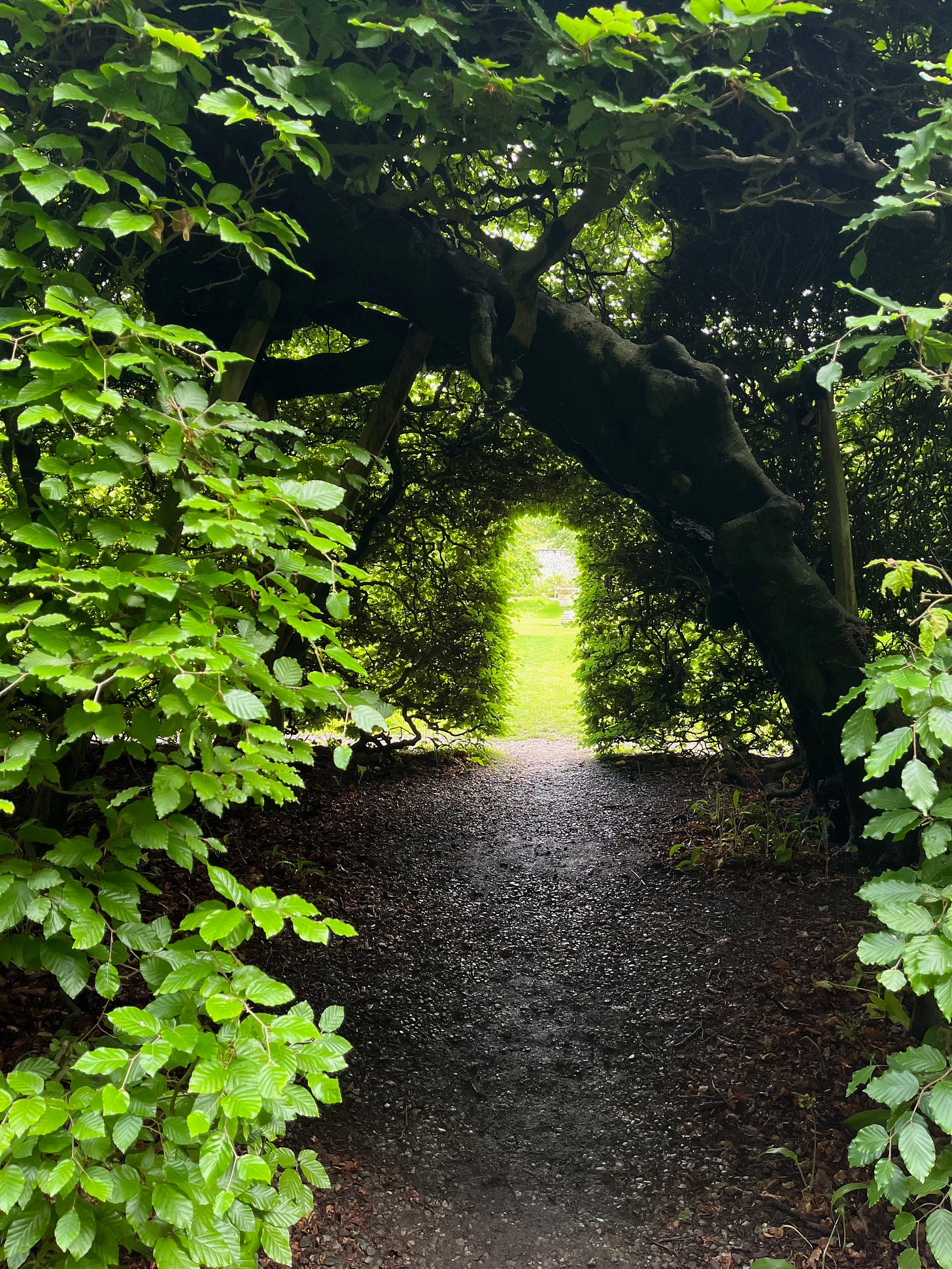The Hard Prune delivers practical tools for dystopian times to your inbox most Fridays.
Friends, what a time we’re living in.
Coming off the heels of last weekend’s No Kings protests — which I know have left some of you fired up and and others of you deflated, wondering where we go from here — I was intending to revisit what I shared in early March about resistance as practice and doubt as par for the course. It’s all in this (somewhat lengthy) essay called Doubt Is Part of the Process.
The gist of it is in these three paragraphs:
So let’s not try to talk doubt out of it. Instead, let’s refocus on taking the actions themselves, regardless of outcome, because they are the right actions to take. To speak up, to show up, to support, to shame, to say no, this is not okay. To connect and care and feel, as much as we are able. To do what we can, because that is what practice asks of us. To remind ourselves that practice is something we do regularly, because we are committed to the process of doing it, and because we care about what the results of that process might be.
Resistance is a practice. It is a creative practice, and creative practice is fundamentally about the making, not about the reception. We do the things we are called to do, the things our hearts ask of us, the things our consciences demand of us, the things the times require of us – to the extent (and only to the extent) that we can.
Allow resistance to be a practice. Be unsurprised when you find yourself wanting things to be different, or not wanting things to be as they are, or feeling buzzy, wired and on edge, or feeling frozen and unable to act, and when each of these things leads to a strong sense of doubt, because these are the challenges that show up when one is engaged in practice. They mean you are doing it. You are engaging in the world, you are staying with what is there, and you are choosing how to respond.
I stand by these words. Our strength and power is found in our commitment and resilience. As long as we don’t acquiesce, we stand a chance of making change.
And yet, on this rainy morning, after dropping my son at school and catching up on the news in car on the way to my studio, which included listening to Jon Stewart’s even more incisive than usual assessment of where things stand, I know this kind of reminder and pep talk is not enough.
Because the truth is, we are firmly in the territory of that which is beyond our capacity, if not to bear, than to fully apprehend. Our minds and nervous systems were not built for this. And we find ourselves, perhaps without realising it, grieving.
In her response to my Shattered Assumptions essay, my dear friend Dana, a death doula and grief partner, left this comment:
The shattering of assumptions can be traumatic and even if it is not more than someone can bear, it can still cause deep grief. We are not always attentive to grief showing up in our lives that isn't related to a death. And many are surprised that grief can show up as rage, disconnection, fatigue and all the other emotions and bodily feelings I hear so many of us expressing right now.
Dana and I will be talking about grief in the coming weeks, and I’ll share our conversation here in one of my Friday posts. In the meantime, a really good resource is Francis Weller’s book The Wild Edge of Sorrow.
While his approach is a bit men-who-run-with-wolves, and he tends to romanticise indigenous cultures, Weller offers a gorgeous, expansive perspective on grief that goes miles beyond the loss of a loved one. Weller, instead, describes multiple gates to grief, including not only the gate of loss but also the gate of the sorrows of the world; the gate of what we expected and did not receive; the gate of those parts of us that have not known love; and the gate of ancestral trauma. Each of these gates opens to the path of grief.
Think of all we may be grieving right now. Loved ones lost, whether to death or dementia or deportation or something else. A world so full of sorrows that, if the Earth could cry, we would all be at sea. Too many things not turning out as expected or hoped. Deep pain as ancestral loss and persecution become acute, and scars revert back into open wounds.
Just getting through the morning news intake can feel like trying to swim through powerful surf, one wave after another knocking you under and punching you down. It can be hard to breathe.
Here is what I remind myself. Find a refuge.
Seek out a thing that absorbs me so completely that the other things slip away.
This doesn’t need to be a profound thing. It can be catching up on accounting and emails, or singing along to Blondie in the car with my kids, or trying to cook a dinner that requires an hour to prepare in the 40 minutes I have available. It can be getting on the rowing machine and going hard, or walking the dog with all devices left at home, or taking a bath-nap, or watching some really absorbing telly. It can often, for me, be playing with words on a page.
The tool here is making the active decision to step into an activity that will consume my attention. Almost always, we maintain the power to direct our attention away from one thing and towards another.
Today, I’m going to look for the things that let me breathe.




